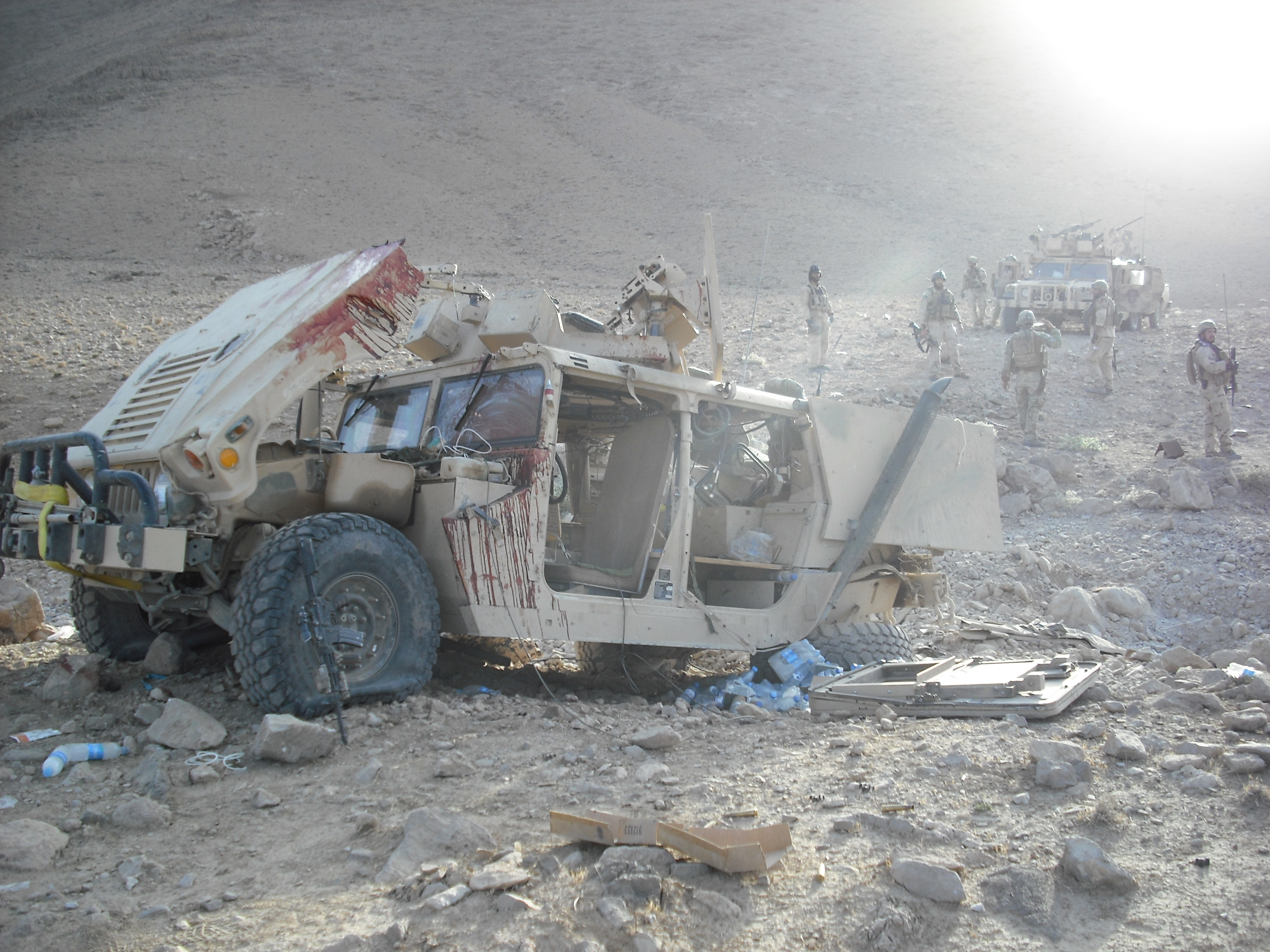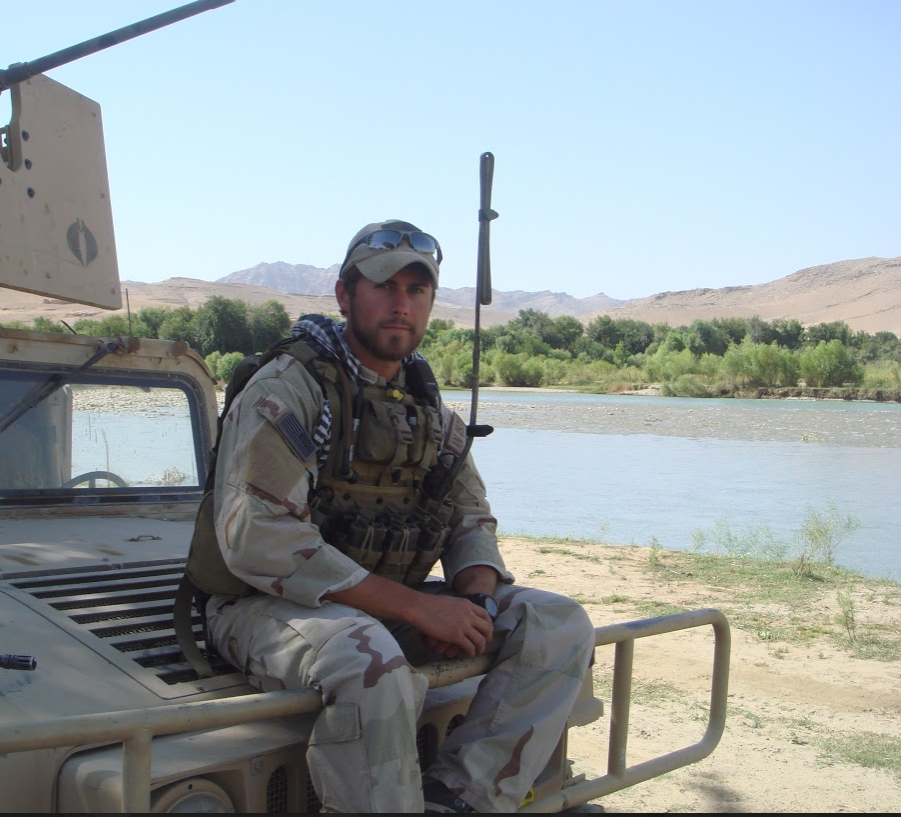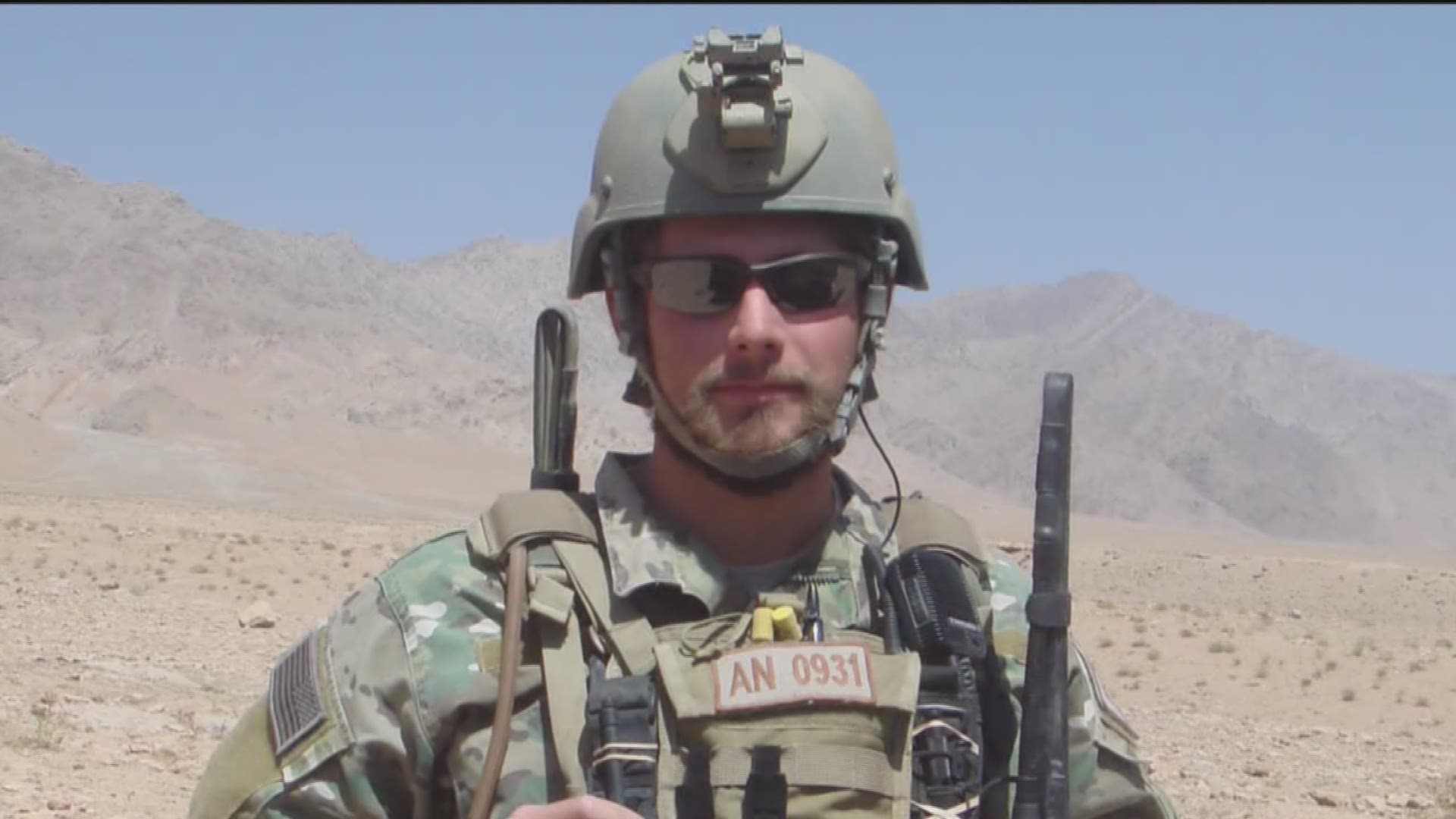MINNEAPOLIS - After a seven-year delay, a Minnesota veteran is finally getting traumatic brain injury treatment and benefits from the Department of Veterans Affairs.
Former Army Staff Sergeant and Green Beret Nate Anderson is one of the nearly 25,000 veterans nationwide whose original traumatic injury exams were not done by specialists, as required by VA policy.
KARE 11 has documented Anderson’s long battle to get a proper TBI diagnosis as part of our ongoing “Invisible Wounds” investigation.
Blood and dust
“Pretty much the only thing I could see after the blast happened was dust,” Anderson remembered. “And then arterial bleeding on the windshield.”
He was recounting an event that took place during the early morning hours of August 1, 2008, in central Afghanistan.
Anderson was behind the wheel of a Humvee when it drove over a landmine. “We hit a pressure plate which detonated some homemade explosives under my vehicle,” he said. “I don’t remember a few things after that.”

Photographs taken of the scene and provided to KARE 11 by Anderson show a mangled, blood-spattered vehicle.
“I woke up, kind of came to, shook the fog a little bit,” Anderson remembered. “And I noticed somebody on our hood, he was bleeding significantly from his legs.”
Anderson said the badly wounded man was a member of his Special Forces team – an Air Force combat controller who had been riding in the back of the vehicle directly over where the IED exploded.
The man was airlifted out and lost both legs, Anderson says he was told. The rest of the team loaded into other vehicles and continued their mission.
“If you could walk and you could answer questions you were okay,” Anderson said.

Searching for Answers
It wasn’t until months later when Anderson returned home to Minnesota that he acknowledged he was not okay.
“It’s embarrassing because I lose what I’m trying to say,” he said. “I uh, uh, I stammer stuff like that. So I went to the VA. I just told them I’m having problems with my memory. I’m having problems with headaches with my speech. Um, what could it be?” he says he asked.
He was given a traumatic brain injury - or TBI - exam in the Minneapolis VA’s Compensation and Pension Department in 2009.
“The answer they gave me was, ‘No you don’t have a traumatic brain injury.’ They told me I was physically fine that it could be related to stress you experienced. You could be experiencing some post traumatic issues,” he recalls the doctors telling him.

Anderson’s VA benefits records show he was denied TBI benefits. But Anderson says it’s not just an issue of benefits. “If you don’t have a diagnosis, then you’re not getting treatment for that condition.”
When problems persisted, Anderson says he paid out of pocket to see a brain injury specialist at Hennepin County Medical Center.
“It was worth it to me to find an answer,” he said.
Records from HCMC show a specialist diagnosed him as having residuals of a traumatic brain injury suffered in the blast in Afghanistan.
“The doctor there, after hearing my story, after examining my symptoms and doing a few tests, they told me pretty plainly that what I was experiencing was in line with a mild traumatic brain injury,” said Anderson.
Armed with that medical evidence, Anderson went back to the VA and appealed his case. Records show the Chief of Compensation and Pension, Michael Koopmeiners, a family practice doctor, was his examiner. Despite the HCMC expert’s diagnosis, Dr. Koopmeiners found “no evidence of TBI during service.”
Anderson’s records show he appealed his case again in 2012. Another doctor examined him, but did no neuropsychological testing and, once again, concluded he did not have a TBI.
National Problem
At the time Anderson did not know he was the victim of what the Department of Veterans Affairs now acknowledges was an injustice. He was one of nearly 25,000 veterans across the country who had their TBI diagnosis made by doctors who – by the VA’s own policy – were not qualified.
Traumatic brain injuries are often invisible but debilitating. Since they can be difficult to recognize, VA policy states that the initial diagnosis of TBI’s must be made by one of only four types of specialists, including neurosurgeons and neurologists.
In the summer of 2015, after months of investigation, KARE 11 exposed how the Minneapolis VA Medical Center had been using unqualified doctors to do TBI exams, often misdiagnosing veterans and denying them the benefits and treatment they deserved.
Records obtained through the Freedom of Information Act revealed that between 2010 and 2014 only one of the 21 medical professionals conducting initial TBI exams at the Minneapolis VA Medical Center was actually qualified according to VA policy.
But the problem spread far beyond Minnesota.
Last month, the Department of Veterans Affairs acknowledged it was a “systemic national problem” impacting veterans in all 50 states.
VA Secretary Robert McDonald announced so-called “equitable relief.” The VA is sending letters offering new exams and the possibility of retroactive benefits to veterans whose initial TBI exams were not done by the proper specialists.
Nate Anderson got one of those letters. As a result, he has been re-examined by a qualified specialist. After a seven-year delay, he finally has received an official TBI diagnosis from the VA.
“It’s ridiculous,” Anderson says about the years it took to get a proper diagnosis.
“Seven years for an answer is quite a while,” he said, shaking his head. “25,000 cases where this happened. It’s, uh - you kind of fail to find the right words to describe exactly how something like this could be allowed to happen.”
The House Committee of Veterans’ Affairs has scheduled a hearing on Wednesday, July 13, to question officials about the VA’s failure to provide adequate traumatic brain injury examinations for veterans.

